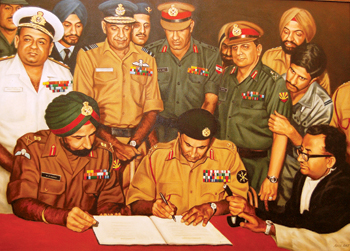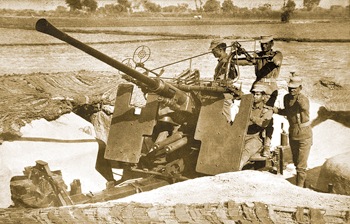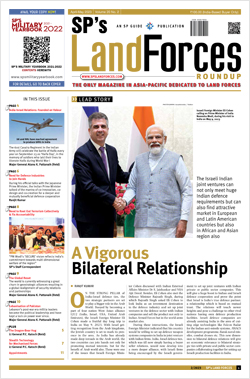INDIAN ARMED FORCES CHIEFS ON
OUR RELENTLESS AND FOCUSED PUBLISHING EFFORTS

SP Guide Publications puts forth a well compiled articulation of issues, pursuits and accomplishments of the Indian Army, over the years

I am confident that SP Guide Publications would continue to inform, inspire and influence.

My compliments to SP Guide Publications for informative and credible reportage on contemporary aerospace issues over the past six decades.
- Interim Defence Budget 2024-25 — An Analysis
- Union Defence budget 2024
- Indian Army: In quest of greater firepower and policy recommendations for gaps
- Indian Army Annual Press Conference 2024
- 6G will transform military-industrial applications
- Tata Boeing Aerospace Delivers 250 AH-64 Apache Fuselages, Manufactured in India
Lt General J.F.R. Jacob – A Legend Laid to Rest


With the mortal remains of Lt General Jacob Farj Rafael Jacob having been laid to rest, a legendry General and a national hero, has transcended from history into eternal history. Born in Calcutta’s Baghdadi community in 1923, General Jacob as Chief of Staff of Eastern Command played a crucial role in the liberation of Bangladesh and securing the surrender of 93,000 Pakistani military during the Indo-Pak War of 1971. He had fought in World War II as well as the Indo-Pak War in 1965. He commanded Eastern Command and also served as Governor of Goa and Punjab. As a young officer he served in Iraq, North Africa, Burma Campaign and Sumatra. He commanded an Infantry Division during 1965.
On his appointment as Chief of Staff Eastern Command, he dealt dexterously insurgencies in Nagaland, Manipur and Mizoram in addition to giving a crushing blow to the Naxalites. With horrendous genocide unleashed in East Pakistan by Lt General Tikka Khan (Butcher of Bangladesh) under ‘Op Searchlight’ in March 1971 (5,00,000 to three million people estimated massacred, thousands of rapes and other atrocities), over 10 million refugees had flooded into India. At a time capture of even provinces of Chittagong and Khulna looked difficult, leave aside entire East Pakistan, and possibility of Chinese intervention in the event of any Indian action could not be ruled out, General Jacob was resolute in his belief that a “war of movement” to include capture of Dhaka could achieve victory; Dhaka as the capital and geopolitical centre of the region and the “war of movement” bypassing intermediary towns altogether since enemy would have fortified the intermediary towns and cities – neutralising enemy’s command and communication infrastructure.
This very strategy was eventually accepted, worked beautifully and resulted in the biggest surrender after World War II, even despite USS Enterprise sabre rattling in the Bay of Bengal and the Nixon-Kissinger duo fuming. Speaking to a journalist much later General Jacob said, “Tactics may win battles but it is strategy that wins wars. Aim has to be very clear. And my aim was to win Dhaka.” The Indian campaign was planned for execution in three weeks, but was executed in under a fortnight. On December 16, 1971, General Jacob flew to Dhaka to get Pakistan Army’s Lt General A.A.K. Niazi to agree to surrender, which latter had little choice but accept – a rare feat by General Jacob. Dhaka fell, despite 26,400 Pakistani soldiers in the city and only 3,000 Indian soldiers in the immediate area. In the words of General Jacob, “It was a total victory over a formidable, well-trained army. Had Pakistan fought on, it would have been difficult for us. We expected higher casualties.” Photos of Lt General A.A.K. Niazi signing the instrument of surrender seated next to Lt General Jagjit Singh Arora, Army Commander Eastern Command adorn military establishments across India.
It is well known that Prime Minister Indira Gandhi wanted the Indian Army to go in earlier but Army Chief General (later Field Marshal) S.H.F.J. Manekshaw sought time till adequate ammunition and equipping could be provisioned. A study of the campaign by the National Defence College of Pakistan gave major credit to General Jacob for meticulous preparation and excellent implementation by the Corps Commanders. An article in The Times of Israel in August 2012, said, “Jack Farj Rafael Jacob, wildly accomplished and widely respected, is best known for his decisive role in the 1971 Bangladesh war. Indians and historians generally agree that his courage, strategic thinking and chutzpa changed the course of South Asian history.” Undoubtedly a great son of India, Lt General J.F.R. Jacob’s name will forever remain etched in gold in the annals of the history of India.





